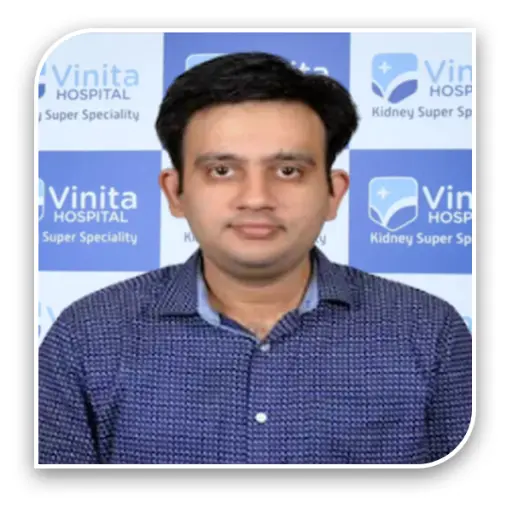Cardiology in Chennai is renowned for its excellence in diagnosing, treating, and preventing diseases and conditions of the heart and blood vessels. With a focus on the structure and function of the heart, cardiologists in Chennai provide top-notch care for various heart-related problems such as heart attacks, angina, heart failure, and arrhythmias. This article explores the diverse aspects of cardiology available in Chennai, highlighting key procedures, common conditions, and the expertise of local cardiologists.
Our Doctors
Common Cardiac Conditions
Cardiology in Chennai addresses a wide range of heart and blood vessel diseases. Understanding these common conditions can help in recognizing symptoms early and seeking appropriate care.
Coronary Artery Disease
Coronary artery disease (CAD) is a condition where the blood vessels supplying blood to the heart become narrow or blocked, potentially leading to a heart attack. CAD is often managed with lifestyle changes, medications, and procedures like angioplasty and stenting. Chennai’s cardiologists use advanced diagnostic tools to detect and treat CAD effectively.
Heart Failure
Heart failure occurs when the heart is unable to pump enough blood to meet the body’s demands, leading to fluid buildup and shortness of breath. Treatment includes medications, lifestyle changes, and in severe cases, surgical interventions such as heart transplants. Chennai’s cardiology centers provide comprehensive care for heart failure patients, including cutting-edge treatments and support.
Arrhythmias
Arrhythmias are conditions where the heart beats too fast, too slow, or irregularly. Common types include atrial fibrillation, bradycardia, and tachycardia. Treatment options range from medications and lifestyle changes to procedures like pacemaker implantation and cardiac ablation. Cardiology in Chennai offers state-of-the-art treatments to manage and correct arrhythmias.
Valvular Heart Disease
Valvular heart disease involves the dysfunction of one or more of the heart’s valves, affecting the heart’s ability to pump blood effectively. Treatment options include medications, valve repair, or valve replacement surgeries. The best cardiologists in Chennai use advanced techniques to diagnose and treat valvular heart disease, ensuring optimal patient outcomes.
Aortic Aneurysm
An aortic aneurysm is an enlargement and weakening of the aorta, the main blood vessel leaving the heart, which increases the risk of aortic rupture. Treatment may involve careful monitoring, medications, or surgical repair. Cardiology centers in Chennai provide comprehensive care for patients with aortic aneurysms, including minimally invasive surgical options.
Advanced Cardiology Procedures
Chennai is home to some of the best cardiologists, offering cutting-edge diagnostic and therapeutic procedures.
Electrocardiogram (ECG)
An electrocardiogram (ECG) records the electrical activity of the heart and helps detect heart problems such as arrhythmias and heart attacks. It is a standard diagnostic tool used by cardiologists in Chennai to assess heart health and guide treatment decisions.
Echocardiogram
An echocardiogram is a type of ultrasound that uses sound waves to produce images of the heart and assess its function. This non-invasive test helps diagnose various heart conditions, including heart failure, valve diseases, and cardiomyopathies. Cardiology in Chennai employs advanced echocardiography techniques for accurate diagnosis and treatment planning.
Coronary Angiogram
A coronary angiogram is an X-ray test that uses a special dye and X-rays to produce images of the coronary arteries and check for blockages. This procedure helps cardiologists determine the best treatment approach for conditions like coronary artery disease. Chennai’s cardiologists are skilled in performing coronary angiograms with precision and care.
Cardiac MRI
A cardiac MRI uses magnetic fields and radio waves to produce detailed images of the heart and surrounding tissues. It provides comprehensive information about the heart’s structure and function, aiding in the diagnosis of complex heart conditions. Cardiology in Chennai utilizes the latest cardiac MRI technology for in-depth heart assessments.
Angioplasty and Stenting
Angioplasty is a procedure where a balloon catheter is used to open a narrowed or blocked coronary artery, improving blood flow to the heart. Stenting involves placing a small mesh-like device to keep the artery open. This procedure is commonly performed in Chennai to treat coronary artery disease and prevent heart attacks.
Coronary Artery Bypass Surgery (CABG)
Coronary artery bypass surgery (CABG) involves creating a new blood vessel to bypass a blocked or narrowed coronary artery, improving blood flow to the heart. This major surgery is performed by experienced cardiothoracic surgeons in Chennai, ensuring the best outcomes for patients with severe coronary artery disease.
Heart Valve Replacement or Repair
Heart valve replacement or repair involves surgical procedures to fix or replace damaged heart valves, improving heart function. Chennai’s cardiology centers offer advanced surgical techniques and minimally invasive options for valve repair and replacement.
Pacemaker and ICD Implantation
Pacemaker implantation involves placing a small device under the skin to help regulate the heart’s rhythm. Implantable cardioverter defibrillator (ICD) implantation involves a device that monitors heart rhythm and delivers shocks if necessary to restore normal rhythm. These procedures are commonly performed in Chennai to treat arrhythmias and prevent sudden cardiac death.
Choosing the Best Cardiologist in Chennai
Selecting the right cardiologist is crucial for effective treatment and recovery. The best cardiologists in Chennai are highly trained and experienced in diagnosing and treating a wide range of heart conditions.
Qualifications and Experience
The best cardiologists in Chennai have extensive training and experience in diagnosing and treating a wide range of musculoskeletal conditions. Look for specialists who are board-certified and have a track record of successful treatments. Their expertise ensures that you receive the highest standard of care.
Patient Reviews and Testimonials
Reading patient reviews and testimonials can provide valuable insights into the specialist’s expertise and patient care quality. Positive feedback and high ratings are indicators of a reputable orthopedic doctor. Additionally, recommendations from friends, family, or primary care physicians can help guide your decision.
Hospital Facilities
Top orthopedic specialists are often affiliated with well-equipped hospitals that offer advanced diagnostic and surgical facilities. Ensure that the hospital has the necessary infrastructure to support comprehensive orthopedic care. Modern imaging technologies, state-of-the-art operating rooms, and skilled nursing staff contribute to better treatment outcomes.
Preventing Cardiac Conditions
Preventing heart problems involves adopting a healthy lifestyle and reducing risk factors for heart disease. Cardiology in Chennai emphasizes the importance of prevention through various strategies.
Healthy Diet
Eating a diet rich in fruits, vegetables, whole grains, and lean proteins, while low in saturated fat, trans fat, and sodium, can help reduce the risk of heart disease. Chennai’s cardiologists often provide dietary counseling to promote heart-healthy eating habits.
Regular Exercise
Regular physical activity can improve heart health and reduce the risk of heart disease. Aim for at least 30 minutes of moderate-intensity physical activity most days of the week. Cardiology centers in Chennai offer exercise programs tailored to individual health needs.
Quit Smoking
Smoking is a major risk factor for heart disease. Quitting smoking can significantly reduce the risk of heart disease and improve overall heart health. Cardiologists in Chennai provide resources and support to help patients quit smoking.
Maintain a Healthy Weight
Excess weight can increase the risk of heart disease. Maintaining a healthy weight through a balanced diet and regular physical activity can help reduce this risk. Chennai’s cardiology specialists offer weight management programs to support heart health.
Manage Stress
Chronic stress can increase the risk of heart disease. Finding healthy ways to manage stress, such as through exercise, meditation, or therapy, can help reduce this risk. Cardiologists in Chennai advocate for stress management techniques as part of comprehensive heart care.
Monitor and Manage Chronic Conditions
Chronic conditions such as high blood pressure, high cholesterol, and diabetes can increase the risk of heart disease. Regular monitoring and effective management of these conditions can help reduce this risk. Cardiology in Chennai includes comprehensive care plans for managing chronic health issues.
Limit Alcohol Consumption
Excessive alcohol consumption can increase the risk of heart disease. Limiting alcohol consumption to moderate levels can help reduce this risk. Chennai’s cardiologists provide guidance on safe alcohol consumption levels to promote heart health.
Conclusion
Cardiology in Chennai is characterized by advanced medical care, experienced specialists, and state-of-the-art facilities. Whether you require diagnostic testing, surgical intervention, or lifestyle counseling, Chennai offers comprehensive cardiology services tailored to your needs. Don’t let heart issues hold you back; take the first step towards a healthier, heart-healthy future by consulting with a trusted cardiologist in Chennai today.
Read also Cardiology Hospital In Chennai.



